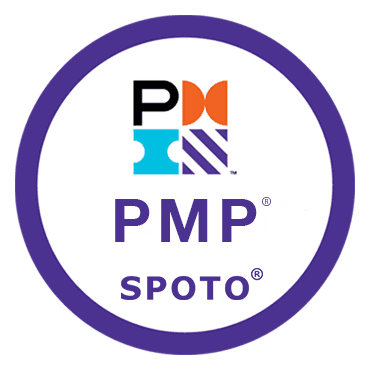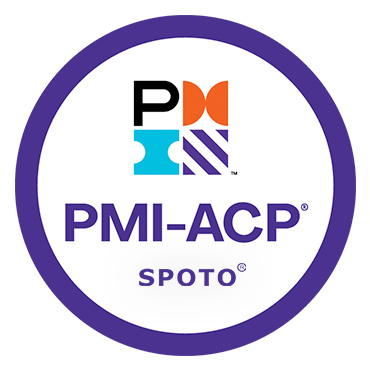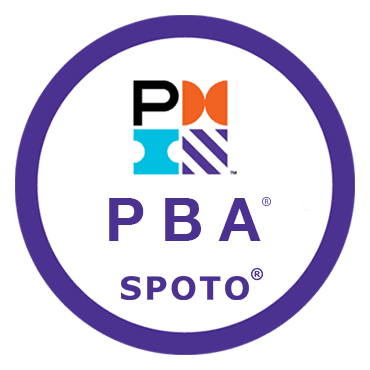The Project Management Professional (PMP)® certification is a globally recognized and highly respected credential that validates a project manager’s ability to lead and direct projects. For many aspiring candidates, the first and most critical question is not about the content, but the structure of the exam itself. How long is it? How many questions are there? What kinds of questions should you prepare for? These are more than logistical details; they are strategic pieces of information that can define a candidate’s study plan and ultimately, their success on test day.
The PMP exam is a 230-minute test consisting of 180 questions, including a mix of scored and unscored items.1 The examination is designed to assess a candidate’s comprehensive understanding of project management across different domains and methodologies.2 To succeed, a candidate must manage not only their time but also the diverse question formats and the proportional content of the test.
Understanding the numerical and structural breakdown of the PMP exam is the first strategic step toward a successful study plan. The exam is a test of endurance and knowledge application, and knowing its exact format is key to building the confidence needed to pass.
A fact-based approach to understanding the PMP exam’s structure, from its question count to its scoring, is essential for any candidate to manage their preparation and confidently navigate the path to certification.
Table of Contents
How Many Questions Are on the PMP Exam, Exactly?
A solid study plan begins with a clear understanding of the numbers. The official PMP exam is a marathon of knowledge that tests a candidate’s stamina and ability to apply project management principles under a time constraint. Knowing the exact number of questions and the time allotted for them is the foundational knowledge for any test-taker.
The PMP exam is comprised of a total of 180 questions, which must be completed within a time limit of 230 minutes.1 This time equates to 3 hours and 50 minutes, making it a demanding test of endurance as well as intellect.4
While the total question count is 180, not all of them contribute to a candidate’s final score. The PMP exam includes a small number of unscored “pre-test” questions that are used by PMI to validate questions for future versions of the test.4 Out of the 180 questions, 175 are scored, while five are not.7 These unscored questions are randomly placed throughout the exam, and a candidate will not be able to identify them.6 This means a candidate must answer every question as if it counts, a strategy that is crucial for maintaining focus and momentum.
The exam’s time allocation also includes built-in breaks that can be a critical tool for managing fatigue. The exam is divided into three sections, with two optional 10-minute breaks available.3 A candidate can take the first break after completing the first 60 questions and the second break after completing the next 60 questions.3 The breaks do not count toward the 230-minute time limit, as the exam clock is paused.3 Taking both optional breaks extends the total duration of the test day to 250 minutes.3 With 180 questions in 230 minutes, a candidate has approximately 76.6 seconds per question, emphasizing the need for quick, accurate decision-making and solid time management.5
The PMP exam has 180 questions, but a candidate’s ability to succeed is more dependent on their strategic use of the 230-minute time limit and two optional breaks.
What Kinds of Questions Can You Expect on the PMP Exam?
The PMP exam is designed to test a candidate’s ability to apply their knowledge to real-world scenarios. It moves beyond rote memorization to a more complex assessment of a candidate’s judgment, problem-solving skills, and ethical behavior. While the majority of questions are based on scenarios, the exam also features a variety of question formats that can catch a candidate off guard if they are not prepared for them.
The PMP exam questions are predominantly situational, but also include a variety of other question types such as multiple-response, drag-and-drop, and hotspot questions.7 The diversity in question format is designed to test a candidate’s comprehensive understanding of project management principles and practices.7
The bulk of the PMP exam, with some sources estimating up to 90% of the questions, is composed of situational questions.7 These questions present a real-life project management problem and ask a candidate to choose the “best” course of action from a list of options.7 The focus is on a candidate’s expertise to apply theoretical knowledge to practical situations.7 In addition to these, a candidate can expect to see questions in other formats, including:
- Multiple Response: These questions require a candidate to select more than one correct answer from a list of choices.7
- Drag-and-Drop: These questions ask a candidate to match items from one column to another, a common way to test knowledge of processes or definitions.7
- Hotspot: A candidate is presented with a diagram or a flowchart and must click on a specific part of the image to mark their answer.7
- Formula-Based Questions: These questions require a candidate to perform calculations using standard project management formulas, such as those for Earned Value Management (EVM), Cost Performance Index (CPI), or Schedule Performance Index (SPI).9 While the frequency of these can vary, a basic understanding of key formulas is a critical component of a candidate’s preparation.
The PMP exam tests a candidate’s ability to apply knowledge through a variety of question formats, with a heavy emphasis on situational problems that mirror real-world project challenges.
How Are PMP Exam Questions Distributed by Domain?
The PMP exam is structured around a content outline that is divided into three core domains: People, Process, and Business Environment.2 Each domain represents a distinct area of project management responsibility and carries a specific weight on the exam. A candidate’s study plan should reflect this distribution to ensure they are focusing their efforts on the most heavily tested areas.
The 180 questions on the exam are distributed across three domains with the following percentages: People (42%), Process (50%), and Business Environment (8%).2 This distribution provides a clear roadmap for where to concentrate study time and effort.
The domains of the PMP exam are designed to assess a candidate’s well-rounded capabilities as a project leader.4
- People (42%): This domain focuses on the soft skills required to lead and manage project teams.4 Questions in this section test a candidate’s ability to manage conflict, empower team members, collaborate with stakeholders, and remove obstacles for the team.12 It reflects the reality that project management is as much about human interaction as it is about technical processes.
- Process (50%): The largest portion of the exam, this domain covers the technical aspects of project management.4 It includes tasks such as managing communications, assessing and managing risks, engaging stakeholders, and planning and managing the budget, schedule, and resources.4 The questions in this domain are split evenly between predictive (waterfall) and agile/hybrid methodologies.7
- Business Environment (8%): The smallest domain, this section ensures that a candidate understands how projects fit within a larger organizational context.4 It covers topics like planning and managing project compliance, evaluating and delivering project benefits, and supporting organizational change.4
The exam content is heavily focused on the Process domain, but also places significant weight on People skills and the Business Environment, reflecting a modern project manager’s diverse responsibilities.
What’s the PMP Exam Passing Score?
A common question among PMP candidates is, “What percentage do I need to pass?” While a direct, numerical answer would simplify the goal, the reality of the PMP exam’s scoring system is more nuanced. PMI does not release a specific passing score, and this is a deliberate decision that reflects the complexity of the exam’s content and its grading methodology.
PMI does not publish a minimum passing score for the PMP exam.4 Instead, a candidate’s performance is graded on a psychometric analysis that determines their ability to perform the role of a project manager.11
While PMI does not provide a fixed passing score, some experts and past candidates estimate that the passing mark hovers around 65%.11 Before 2005, the passing score was a fixed 61%, but this is no longer the case.11 The current system grades questions based on their difficulty, which means a passing score can vary from one exam to another.11
The high failure rate for first-time test-takers, estimated at 40-50%, is a powerful indicator that the exam is a serious challenge.11 This underscores the importance of a robust and rigorous study plan. To build confidence and increase the likelihood of passing, many experts recommend aiming for at least 80% on practice exams.11 This provides a comfortable buffer that accounts for the unknown variables of the actual exam and ensures a candidate has a deep, well-rounded understanding of the material.
Instead of aiming for a fixed passing score, success depends on demonstrating a high level of competence across all domains. This makes consistent preparation and strategic practice more valuable than simply targeting a specific percentage.
Conclusion
The PMP exam is a comprehensive assessment that goes beyond a simple test of knowledge. It is a strategic challenge with a clear, fact-based structure. By understanding that the exam consists of 180 questions over 230 minutes, is divided into a predictable domain-based format, and utilizes a variety of question types, a candidate can lay the groundwork for a successful outcome. The journey to PMP certification is a project in itself—one that requires a well-researched, organized, and fact-based approach to both the application and the exam.
External Links Recommendations
- PMI PMP Certification Page: The official source for the most up-to-date exam information, including the question count, duration, and content outline.2
- Project Management Academy: A valuable resource providing details on the exam format, scoring, and common questions.1
- Crush the PMP Exam: Provides insights on the exam’s cost, requirements, and an honest look at the exam’s difficulty and passing rates.11
- PM-Exam-Simulator: A resource that breaks down the exam’s timing, questions, and offers tips for pacing yourself on test day.5
Reference links:
- Pass Rate – PMP Exam – Project Management Academy, https://projectmanagementacademy.net/pass-rate
- Project Management Professional (PMP)® Certification | PMI, https://www.pmi.org/certifications/project-management-pmp
- How long is the PMP exam? – Reddit, https://www.reddit.com/r/pmp/comments/1b59qj2/how_long_is_the_pmp_exam/
- Free PMP Certification Practice Test (updated 2025) – Mometrix, https://www.mometrix.com/academy/pmp-exam/
- How Long is the PMP Exam: All Your Questions Answered, https://www.pm-exam-simulator.com/articles/pmp/how-long-pmp-exam
- PMP Practice Test (Prep for the PMP Certification Exam), https://www.testprepreview.com/pmp_practice.htm
- Format Of PMP Certification Exam & Type Of Questions [2024] – PMExperto, https://www.pmexperto.com/type-of-questions-in-pmp-exam/
- PMP Exam Questions [Advanced Guide with Examples and Links], https://www.project-management-prepcast.com/pmp-exam-questions
- 30 PMP Formulas to Pass the PMP Certification Exam 2025 – KnowledgeHut, https://www.knowledgehut.com/blog/project-management/pmp-formulas-to-pass-the-pmp-certification-exam
- My Road to 3AT – How to Avoid My Mistakes : r/pmp – Reddit, https://www.reddit.com/r/pmp/comments/171r04k/my_road_to_3at_how_to_avoid_my_mistakes/
- PMP Certification Requirements – CRUSH The PM Exam 2025, https://crushthepmexam.com/pmp-requirements/
- PMP Eligibility And Requirements in 2025-26 – StarAgile, https://staragile.com/info/project-management/pmp-certification-eligibility
- What Happens if You Fail the PMP Exam? (PMI Failure Rate) [2025], https://www.4pmti.com/learn/pmp-exam-failed/









Comments